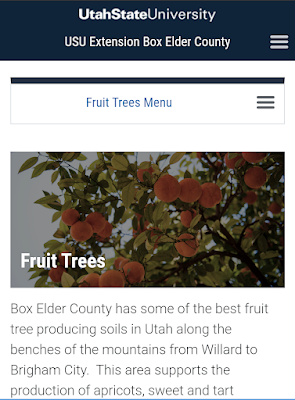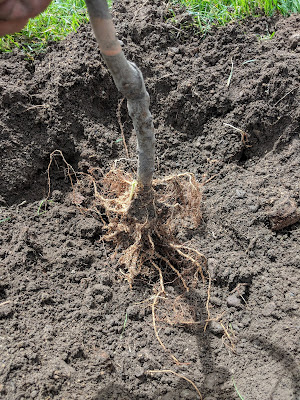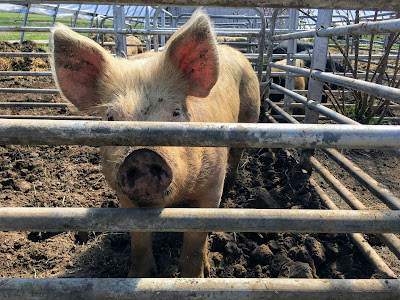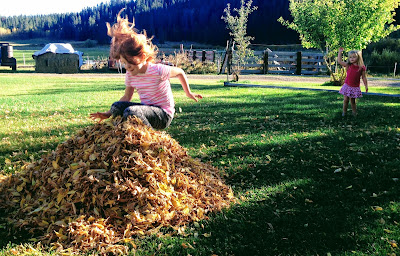Never Fertilize Your Fruit Trees?
Trees have an extensive and complex root system that is responsible for nutrient intake, water intake and anchoring your trees to the ground. Fruit trees are good at finding the nutrients they need if those nutrients are available in the soil. How do you know if your soil has the nutrients that your fruit trees need? Have it tested!
How do you get your soils tested?
First, you can contact your county extension. Many universities have soil testing laboratories that allow students to learn about soils by testing them under the supervision of a university professor. This test is inexpensive and will give you a detailed report on your soil type, and the nutrients found in the ground. Many soil tests will prescribe fertilizers that you can use to correct nutrient deficiencies, but I don't think you'll need to fertilize your trees if you follow the suggestions below. You can find a state by state list of fruit tree resources here.
Finding a lab, collecting a sample, packaging it, and mailing it to the university takes a lot of time and effort. I'm not suggesting that it's not worth the effort, but I think there is a simpler way.
Like mentioned above, fruit trees have an extensive root system and are good at finding the nutrients they need, so where can you get a good source of tree nutrients? From trees of course! Mulching your fruit trees with shredded tree mulch is the best way to help your trees receive the nutrients they need. Other benefits from mulch include fewer weeds and better water retention.
When mulching your trees, make sure you use at least 4 to 6 inches of mulch out past the drip line. Don't incorporate the mulch into the soil, just simply place it on top of the ground. You don't even need to pull, spray, or cut weeds and grasses. If you use a thick enough layer of mulch it will cause the vegetation under the mulch to start decomposing and keep it from returning. If it does start growing through the mulch, just add another thick layer on top of the old one. Also, make sure you don't pile the mulch around the bark at the base of the tree.
Where do you get tree mulch?
You can contact a local tree service company and ask if they would be willing to dump a load of shredded tree mulch at you house, or you can use a mobile app like Chip Drop. Sometimes you have to be patient and flexible when receiving a free service like this. You may not have a say in how much you receive or where they dump it, but most properties could never have enough mulch, especially if the gardener knows how to use it. The best mulch is made in the summer when there is a mix of wood chips and leaves. This combination of carbon and nitrogen with the high moisture content in the mulch will allow it so start decomposing instantly without being too "hot".
Can I use other types of mulch?
Shredded tree mulch is the best kind of mulch for your fruit trees, but other mulches will also work. Local nurseries sell mulch in bulk or bags. I prefer to use a medium shredded mulch because the shredded mulch will weave together and stay put when placed on the ground. Some fine mulches blow away in the wind and rain.
Some local dumps grind up yard waste and sell it back to their customers. This can be an inexpensive option, but I find it sometimes has bits of plastic and other non-organic materials.
Animal manures are high in nutrients, but are not recommended for fruit trees because of the high salt content. Some manures, if not fully composted, can be too high in nitrogen and will cause more harm than good.
Hay or straw can be used as a mulch around trees, but it can have lots of weed seeds.
Leaves are a great mulch for placing around fruit trees. Leaves in the fall are easy to come by and they too are a good source of micro-nutrients and attract a lot of beneficial organisms that improve soil health.
What about chemical fertilizers?
Chemical fertilizers were developed to provide macro-nutrients to plants so that large areas could be treated inexpensively. Imagine covering acres of land with 6 inches of shredded tree mulch. Even if the mulch was free it would cost a lot to haul and spread it. The problem with chemical fertilizers is that they only provide the macro-nutrients and lack many of the micro-nutrients trees need to be healthy. Also, Chemical fertilizers only provide a shot of nutrients that will need to be added again and again.
Why shredded tree mulch?
Organic mulches like shredded trees provide your plants with nutrients and continue to do so as they breakdown year after year. This mulch becomes an environment for a beneficial organism ecosystem that helps in improving your soil.
Fruit trees with a heavy layer of organic mulch from the trunk to the drip line will have more nutrients, will need less water, and be less susceptible to pests. When mulching your fruit trees heavily you won't need a soils test and you will never have to use chemical fertilizers again.
Thanks for Reading! If you would like to learn more about the care and pruning of fruit trees, please browse our 100+ fruit tree articles here, join our Backyard Fruit Growers Facebook Group, and take our free Fruit Tree Pruning Course. Also, please subscribe to our Fruit Pruning YouTube Channel.










Comments
Post a Comment